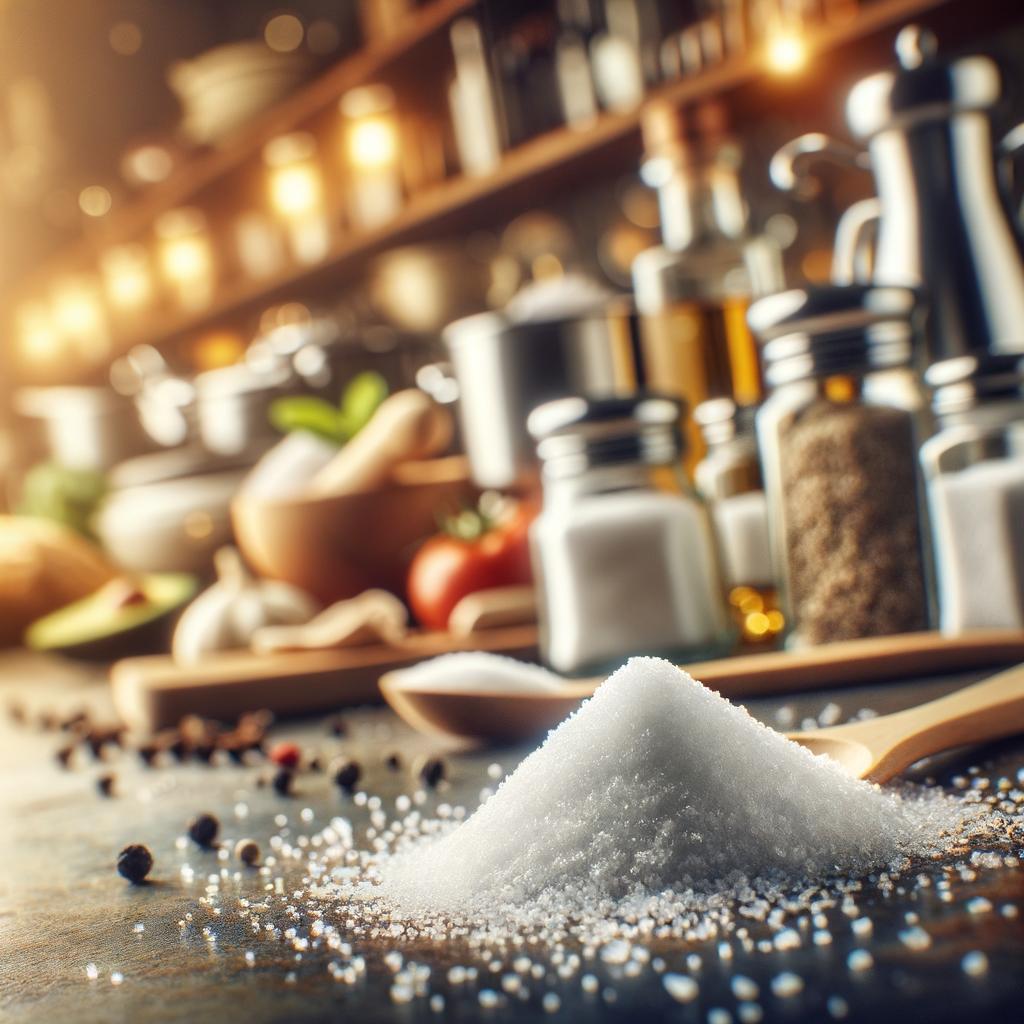Pinch of Salt

Description Salt, a humble yet powerful ingredient, is a crystalline substance that is as captivating as it is essential. Its appearance is unassuming, with tiny, gleaming grains that can be fine or coarse. The texture of salt crystals can be compared to sand, albeit with a certain crunch when bitten into. Flavor-wise, it brings a unique touch to the palate, enhancing other flavors without asserting its own. Salt's unique characteristic lies in its universal application, transcending cultures and cuisines to become a cornerstone of global gastronomy.
Primary Uses Salt has been a fundamental part of cooking since time immemorial. It is used as a seasoning, bringing out the natural flavors of food and reducing bitterness. From the simplest of dishes like boiled eggs to the most elaborate gourmet meals, salt is a key component. It also plays a crucial role in food preservation, extending the shelf life of various foods like meats and pickles. Beyond the culinary world, salt has been used for medicinal purposes, such as saline solutions, and holds cultural significance in various traditions and rituals around the world.
History The history of salt is as rich and varied as its uses. Once considered as valuable as gold, it has been a cause for wars, a medium of exchange, and a mark of social standing. Ancient Roman soldiers were even paid in salt, giving birth to the word 'salary'. Over time, the use of salt has evolved from a precious commodity to a common kitchen ingredient, yet its value in enhancing and preserving food remains unchanged. Folklore and myths abound with salt – from superstitions about spilling salt to its use in warding off evil spirits.
Nutritional Information Despite its simple composition, salt holds a significant place in nutrition. It is a primary source of sodium, which is essential for nerve and muscle function, and maintaining fluid balance in the body. However, moderation is key as excessive sodium consumption can lead to health risks like high blood pressure and heart disease. Compared to similar ingredients like potassium-based salt substitutes, table salt has a higher sodium content. The romance of salt lies not in its nutritional value, but in its ability to transform the mundane into the magnificent with just a pinch.

